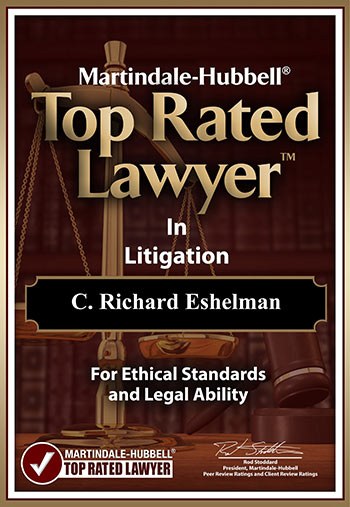Pesticides Frequently Asked Questions
What Is A Pesticide?
A pesticide is any substance or mixture of substances intended for preventing, destroying, repelling, or mitigating any pest. Pests can be insects, mice and other animals, unwanted plants (weeds), fungi, or microorganisms like bacteria and viruses. Though often misunderstood to refer only to insecticides, the term pesticide also applies to herbicides, fungicides, and various other substances used to control pests. Under United States law, a pesticide is also any substance or mixture of substances intended for use as a plant regulator, defoliant, or desiccant.
Some common household pesticides;
- Cockroach sprays and baits
- Insect repellents for personal use
- Rat and other rodent poisons
- Flea and tick sprays, powders, and pet collars
- Kitchen, laundry, and bath disinfectants and sanitizers
- Products that kill mold and mildew
- Some lawn and garden products, such as weed killers
- Some swimming pool chemicals
How Do I Select A Reputable Exterminator?
Shop around. Ask to see a current pesticide applicator’s license. Ask for the names of chemicals that the applicator would be using, the rates of application of products he is suggesting. Ask if their are less toxic alternatives. Ask about Integrated Pest Management (IPM).
Call your Regional EPA office or State Lead Agency for additional information regarding the products proposed by the pesticide applicator.
What Is Integrated Pest Management (IPM)?
Integrated Pest Management (IPM) is a system of practices designed to choose the most economical and environmentally friendly course of action in controlling pests. Fundamental to IPM is the concept of “Know what the problem is before you apply pesticides”. Hence, scouting the crops for pest infestation, and comparing the cost of pest damage with the threshold cost of pesticide application helps to reach a decision on when to spray or not to spray. Crop rotation is also a practice in the IPM tool kit which can reduce the need for pesticides to control such damaging pests as the corn root worm and soybean cyst nematode.
What Can I Do If I Think My Neighbor’s Pesticide Application Has Drifted Over To My Property?
Immediately report this situation to the State Lead Agency. They will asses the situation and if warranted, make an on-site inspection. If you feel that you have been directly exposed to this pesticide drift, please contact your local health care provider. If you feel that you have been injured or harmed as a result, contact our office immediately.
I’m Chemically Sensitive, How Can I Be Notified If My Neighbors Have Applied Pesticides?
There is no Federal law requiring pesticide notification, however some communities have Chemical Registers and Notification Laws. Check with your community for additional information.
Where Can I Obtain Information About Pesticide Residues On Raw And Processed Foods?
The United States Department of Agriculture (USDA) and United Stated Food and Drug Administration (FDA) both monitor foods for pesticide residues and publish annual reports. Copies of the USDA Pesticide Data Program annual report are available from the USDA by calling (202)720-2158.
Where Can I Have My Drinking Water Tested For Pesticides?
The answer depends on whether your water comes from a well on your property or public water supply company, and the type of pesticide contamination you believe may be present.
a) If your water is from a public water supply, contact your State drinking water official located in your State environmental agency. They can tell you whether your water is regularly tested for that type of pesticide and how much, if any, has ever been found.
b) If you have a private well or if your water has not been tested for that type of pesticide, contact your State pesticide program. They can assist you in determining whether testing is warranted, choosing the type of analysis to be performed, identify laboratories capable of performing the analysis, and determining the significance of testing results.
My Neighbor Applied A Pesticide. I Am Concerned That The Pesticide Is Now Also On My Property [E.G. Vegetable Garden, Private Well, Etc.]. What Can I Do?
Ask your neighbor which pesticide they applied and ask to read the label on the container. The label contains a great deal of information. If you still have questions or are concerned, you call the U.S. EPA or your State Lead Agency.
What Is The Food Quality Protection Act (FQPA)?
A new law that amends the Federal Insecticide, Fungicide, and Rodenticide Act (FIFRA) and establishes a strong, health-based safety standard for pesticide residues in all foods. It uses “a reasonable certainty of no harm” as the general safety standard, the same approach used in the Administration’s 1994 bill. A single, health-based standard eliminates longstanding problems posed by multiple standards for pesticides in raw and processed foods. It requires EPA to consider all non-occupational sources of exposure, including drinking water, and exposure to other pesticides with a common mechanism of toxicity when setting tolerances.
Call: 1-800-365-0001
The Conclusion
The attorneys at the Eshelman Legal Group understand that no matter how cautious you are, others may not be so careful, and accidents do happen. So we hope you don’t need to, but if you are in a situation where you need the advice of an personal injury attorney, the Eshelman Legal Group is here to help you. For over 40 years we have been assisting accident victims, and we are here to assist you too... because “We’ll make things right.”
Ask yourself this question… who does the adjuster work for? The adjuster works for the insurance company, they do not work for you.
In all matters involving personal injury it is essential that measures be taken promptly to preserve evidence, investigate the accident in question, and file a lawsuit prior to the deadline imposed by the Statute of Limitations. If you or a loved one is a victim of personal injuries, call Eshelman Legal Group LLC, now at 1-800-365-0001. The initial consultation is free of charge, and if we agree to accept your case, we will work on a Contingent Fee basis, which means we get paid for our services only if there is a monetary award or recovery of funds. Don’t delay! You may have a valid claim and be entitled to compensation for your injuries, but a lawsuit must be filed before the statute of limitations expires. The above is not legal advice. That can only come from a qualified attorney who is familiar with all the facts and circumstances of a particular, specific case and the relevant law. See Terms of Use.






